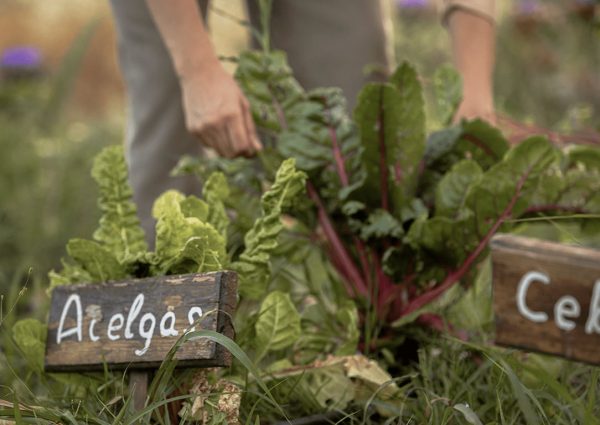Syntropic farming

Natural processes to create
sustainable agricultural systems
Syntropic agriculture is an agricultural approach based on the principles of succession and natural stratification of ecosystems. It was developed by the Swiss farmer and scientist Ernst Götsch. This method promotes cooperation between plants and animals instead of competing for resources, mimicking natural processes to create sustainable and self-sufficient agricultural systems.
Learn and experience the...
Principios de la Agricultura Sintrópica
Natural succession is nature's tendency to rehabilitate the land, taking it from barren to fertile and densely vegetated.
Succession refers to the natural evolution of ecosystems over time, from early colonizers to mature communities. Syntropic agriculture mimics this process, planting species at different stages of their development to maintain soil productivity and biodiversity.
Stratification consists of using different levels of vegetation (strata) that occupy different height levels and different ecological niches. This maximizes the use of sunlight and space, allowing diverse plants to coexist and thrive.
The synchronization of plant and animal life cycles ensures that each species performs its function at the right time, creating a constant flow of nutrients and energy within the system.
Regular pruning of plants generates biomass that is reincorporated into the soil as organic matter, improving soil fertility and water retention. This also mimics leaf and branch fall in natural forests.
Plant and animal species are selected to work together synergistically. For example, some plants may provide shade, others may fix nitrogen in the soil, and others may attract pollinators or control pests.

Let's contribute to the environment the...
Beneficios de la Agricultura Sintrópica
Muchas ventajas de la agricultura sintrópica es que2 permite optimizar el rendimiento por árbol a largo plazo. Esto se debe, principalmente, a que los árboles crecen en armonía con la naturaleza, por lo que pueden alcanzar todo su potencial cuando se les da el tiempo suficiente..
Reduces dependence on external inputs such as fertilizers and pesticides, promoting a closed nutrient cycle.
Creates agricultural systems that are more resistant to pests, diseases and extreme weather conditions.
Promotes biological diversity, which can increase the stability and productivity of the agricultural ecosystem.
Increases organic matter and microbial activity in the soil, improving its structure and fertility in the long term.
Planned succession and layering allow for continuous production of food and other agricultural products, without the need for extensive crop rotations.

óptimos resultados en la ...
Implementación de la Agricultura Sintrópica
La agricultura sintrópica ofrece un enfoque holístico y regenerativo para la producción de alimentos, basado en la cooperación con los procesos naturales y el respeto por la biodiversidad.
Plan the agricultural system based on natural succession and species stratification. Identify the appropriate plants for each stage of succession and stratum.
Choose species that fulfill specific functions (nitrogen fixation, soil cover, food production, etc.) and that are compatible with each other.
Implement pruning and biomass management practices to return nutrients to the soil and maintain ecosystem structure.
Continually monitor system development and adapt as necessary to maintain balance and productivity.

We are leaders in innovative services of rest, tranquility and wellness for our domestic and foreign guests.
About Us
We cooperate with the improvement of the quality of life of man and his environment.
Location
We are located in Sonadorsito, Monseñor Nouel Province, Dominican Republic.
Contacts
Email: info@fundacioncamporeal.org
Phone: +1 829 986 7036
+1 809 296 8278